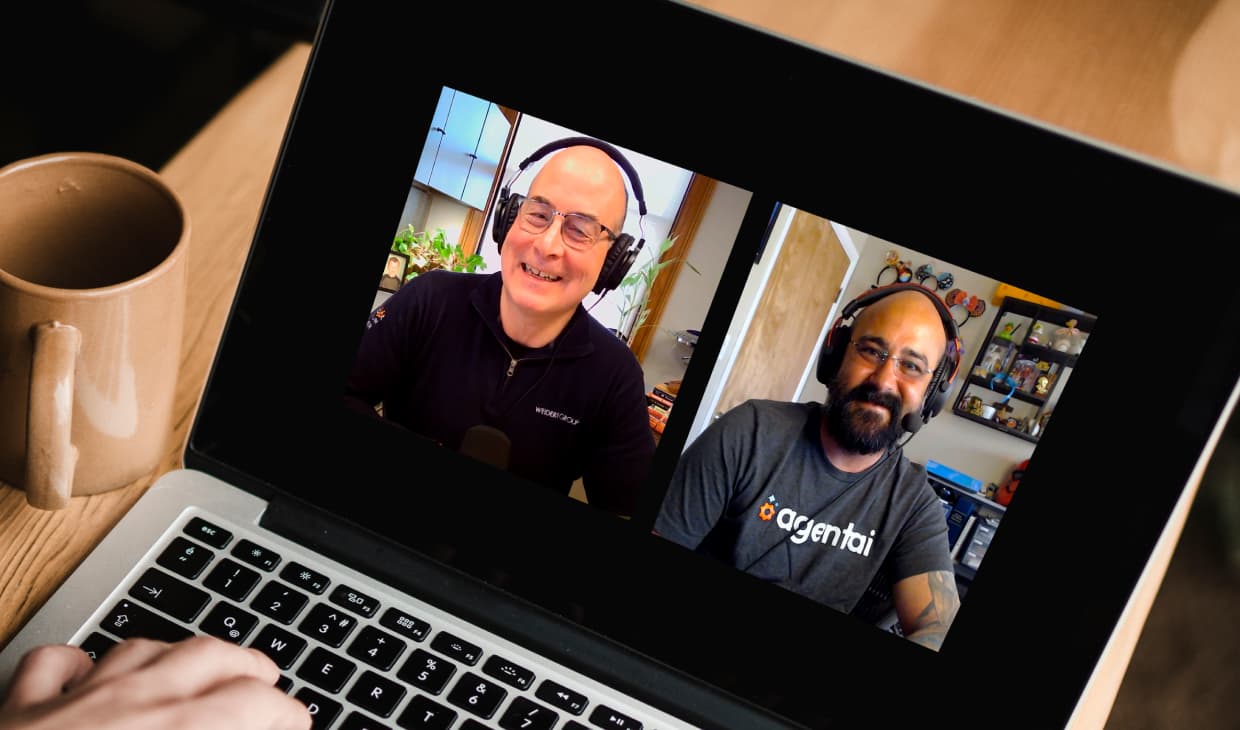On stage at the 14th Annual Manufacturing First Expo & Conference, keynote speaker Steve Jones of Jadin/Jones Coaching and Consulting reminded industry leaders that cultivating a winning culture can help any company navigate the key manufacturing challenges that persist and lay ahead.
What does a winning culture look like? Jones points to what he calls the formula for success: developing people, fostering a positive mindset, and building trust within teams. The common theme is preparedness and staying ahead of the curve because, in the words of celebrated UCLA Bruins men’s basketball coach John Wooden, “Once the opportunity arrives, it’s too late to prepare.”
It’s sound advice about the vigilance and humanness that’s needed to make all of your company's assets — including the data and technology you have — work toward navigating a murky industrial landscape. The constant flux churns up challenges like those presented at Manufacturing First that manufacturers need to be mindful of and, in some cases, embrace:
- AI, Digital Transformation & Cybersecurity
- Ongoing Labor Challenges
- Sustainability Practices and Compliance
- Engaging Qualified Leads
1. AI, Digital Transformation & Cybersecurity
Artificial Intelligence (AI) is a top-of-mind topic for manufacturers, especially its ability to augment data-driven processes, automation, and operational efficiencies.
Nearly 85% of industrial leaders had committed to putting more budget behind AI capabilities in 2024 — a 20% boost over 2023 numbers, and a vote of confidence for continued digital transformation in the manufacturing sector.1
The enthusiasm about AI, automation, and the like must be tempered with pragmatism.
The vast amount of electronic data gathered and shared by advanced technologies presents an inherent risk of cyberattack. In 2024, a reported 65% of manufacturers experienced ransomware attacks — a disturbing trend that could leave operations vulnerable to financial loss and production disruptions without proper security measures in place.2
Many manufacturers are adopting cyber resilience strategies to protect their operations. Unlike traditional cybersecurity, cyber resilience combines system protection with business continuity measures in the event of an attack. Proactively anticipating and responding to cyberthreats is an exercise in continuous improvement that enables quick recovery as manufacturers grow more reliant on data and technology.
2. Ongoing Labor Challenges
It’s no secret the manufacturing sector is experiencing ongoing, unprecedented labor shortfalls. Mid-2024 saw about 603,000 job vacancies, and from all indications the gap is expected to continue to grow to upwards of 1.9 million unfilled jobs by 2033 should the trend continue.3,4
There is no quick fix, but manufacturers are finding new ways to tap into top talent, increase engagement, and ultimately reduce turnover. Some HR managers are turning to advanced upskilling as a path to retaining employees. Microcredentials are mini-programs or workshops concentrated on teaching employees in-demand skills in specific areas, which can propel career advancement.
Likewise, there is continued emphasis on the essential need for humans in the era of AI and automation. Human-centric leadership attracts critical thinkers from the C-suite to the shop floor who enjoy innovating human-centered solutions enabled by AI — not a byproduct of it — to drive desired growth and profitability.
3. Sustainability Practices & Compliance
Manufacturers are taking responsibility for their part in protecting the environment. Implementing sustainability initiatives that keep customers on track with regulatory compliance is underpinned by more sustainable practices manufacturers have in place.
The focus on and commitment to energy and water conservation, reduced carbon footprint, use of more sustainable materials, and the recycling and remanufacturing principles of a circular economy have netted some impressive results.
Recent survey results show that 79% of manufacturers have specific manufacturing and production sustainability goals in place, followed by supply chain (69%), and product development (67%).5
There is also the growing influence of Environmental, Social and Governance (ESG) to consider. While typically associated with investing, ESG criteria are also becoming a non-financial performance benchmark by which manufacturers screen potential suppliers, and how manufacturers are assessed by their potential and existing customers.
ESG standards are inextricably linked to sustainability in the manufacturing setting as well as other industries. They serve to identify suppliers and manufacturers that are environmentally responsible, globally conscious, and aligned with broader sustainability initiatives and regulatory requirements.
4. Engaging Qualified Leads
Across the board, Google searches are down, and search volume is set to drop by 25% by 2026 as the impact of AI expands.
What worked for lead generation 5 years ago doesn’t work anymore, as lower site traffic equals lower conversion rates equals lower growth. Industry experts estimate that sales reps are currently hitting about 50% of their quotas — a 16% decline from just two years ago.6
What to do? The answer is likely already available to you — your data around value recovery from your existing marketing base, and the ability to squeeze more out of your assets through “plays” instead of website-based lead gen.
Plays are simply a sequence of trigger-based actions that sales and marketing teams take to accomplish specific goals, objectively measure results, and take relevant action to convert leads. From there, the teams have actions to execute to harvest low-hanging fruit and quickly accelerate the pipeline.
This is a very high-level explanation of a complex framework, but we’re here to connect you with details. Weidert Group president Greg Linnemanstons led a Manufacturing First session on The Top Industrial Marketing & Sales Plays Your Lead Gen Strategy Needs Now.
Missed Greg's session? You can hear him deliver it live again in-person or online by registering for our November 13 Appleton HubSpot User Group meetup. Registration is free, and in-person attendees can stick around for a complimentary happy hour!
Undoubtedly, manufacturing industry challenges continue to create turbulence. Interconnectivity of people and technology, and an awareness of what’s happening and what’s to come are vital.
Exploration and discussion of issues in venues such as the Manufacturing First Expo & Conference open the door to solutions on a broad scale. Equally as important are the topics we cover on The ChangeOver Podcast that give industrial leaders nuanced insights into the shifting B2B sales and marketing landscape and actionable execution steps to move their companies forward.





